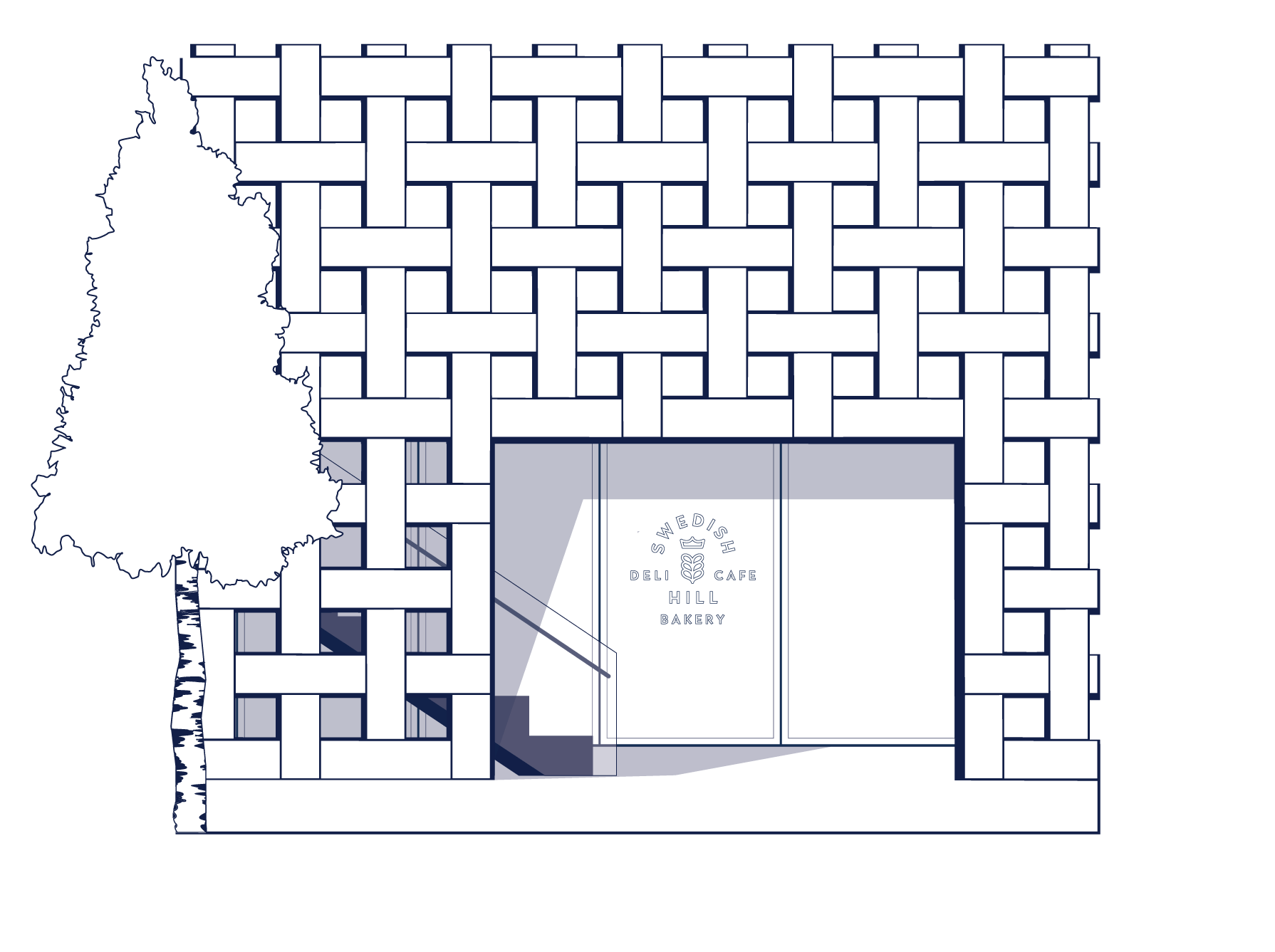Aspen Art Museum
CURRENT ISSUES: Tina Brown
Legendary editor, journalist and author Tina Brown is the first external curator of the Aspen Ideas Festival: bringing baseball stars, CEOs, Shakespeare scholars and a diverse spectrum of thinking to Aspen this June
EVAN MOFFITT
You’ve had a long and illustrious career as an editor, from Tatler, Vanity Fair and The New Yorker to founding The Daily Beast. You chronicle some of those experiences in The Vanity Fair Diaries [2017], which is full of dishy insights on the politics and culture of the 1980s, but also shows how you were able to put that magazine on the map. So, can you explain what makes for great editorial? What do you look for?
TINA BROWN
I’m always looking for a strong point of view. An against-the-grain point of view. Vivid writing and a flair for combining that with visuals. The photograph, with the headline, with the text—it’s an art form, to make those things kinetic. That’s what Vanity Fair did at its best—bring together pictures, words, captions, headlines, the article, the cover. It was a real package. Sometimes people erroneously think that a great magazine is a bunch of articles with a staple through it, but actually, it’s so much more than that.EM
Do you approach the challenge of putting together a dynamic talks program in a similar way to curating a magazine, with a broad range of voices?TB
Yes. My approach to the Aspen Ideas Festival has been very much like the approach I bring to magazines. I have had a parallel career in live events for a long time. For ten years, I ran Tina Brown Live Media and Women in the World, with summits globally. I was actually the first person to use the term “live journalism” because I saw that broadcast journalism, in particular, was reluctant to give time and space to fascinating voices that weren’t those of celebrities. That’s why I created Women in the World—to bring to the stage global women who no one had ever necessarily heard of, but who had powerful stories to tell. You need your Angelina Jolie or your Oprah so that people show up, but really, what they go home talking about is very often someone they’d not heard of before, who shared their spotlight.So, with Aspen Ideas, I approached it like an issue of Vanity Fair or The New Yorker. I’ve tried to bring the highlow mix of pop culture, as well as idea-driven conversations and writers.
It’s actually the first time I’ve done a festival, which is a whole other animal. There’s a certain amount of exciting anarchy to a festival because it’s all going on at the same time. You really have to accept that people are going to be choosing one event over another. Every program needs to offer a way to get people into the room. And, in Aspen, you’re not only competing with the other programs but with the gorgeous scenery; a lot of people are attending the festival so they can have a smattering of culture and then go off for a hike. You have to just live with that, but as a control freak, it worries me. I’m always asking my team, “How can I make this program better than a hike?”
EM
Having just returned from power walking the Venice Biennale, I can absolutely relate.TB
I like that analogy. I’m hoping that Aspen Ideas will have that Biennalelike feeling where you suddenly discover something and you don’t really know who or what it is. The festival is a real banquet this year. We will have comedian and writer Bill Maher, the artist Hank Willis Thomas, who made The Embrace [2023], the sculpture honoring the relationship of Martin Luther King Jr. and Coretta Scott King, and the writer Chimamanda Ngozi Adichie. John Legend is confirmed, but not yet announced. Then there is the actor Renée Fleming; Satya Nadella, the CEO of Microsoft; Jane Fonda; the Brazilian musician Alok; the journalist Fareed Zakaria; the baseball great A-Rod; and Kris Bowers, the composer and documentary maker who just won an Oscar for The Last Repair Shop [2023]. So, you can see, it’s a great mix. I don’t think there are many events where you can find both A-Rod and Fareed. We have a wonderful panel called “Shakespeare and Politics,” moderated by New York Times columnist Maureen Dowd, with Shakespeare scholar Stephen Greenblatt and historian Sir Simon Schama.EM
You’ve assembled a cast of speakers from across the political spectrum. Jane Fonda and Patrick Cox, the Republican governor of Utah, for example, might not agree on all that much. What do you hope to achieve with such an ideologically diverse assembly?TB
I want to make a point. It’s deeply boring when it’s all the same old liberal or Republican consensus. It’s very hard today to get a mix like this, but I want to ensure that we really do cross the spectrum. We have the conservative historian Niall Ferguson doing a panel on the China-Taiwan issues with Matt Pottinger, who was part of the Trump administration. And yet, we also have former Secretary of State John Kerry on the climate crisis. I don’t want this festival to feel hermetic, like everybody’s got the same point of view. You want people to be challenged intellectually and enjoy it.EM
What are your impressions of Aspen itself? Is there anything about it that is conducive to this kind of assembly?TB
I know a lot of the people at the Aspen Institute. I’m a very good friend of former CEO Walter Isaacson and I’ve been to the festival as an author. The combination of the ravishing landscape, the backdrop of the Rockies and a very, very deep history of intellectual debate, with people of stature—it has acquired a kind of wonderful halo. Aspen stands for intelligence, humanity and conversation. This is the 20th festival—that’s a very deep pedigree. Now, they want to change direction a bit, but still work with those great bones. There are many people who’ve come to Aspen for years and they’ll all still be there, but also some fresh faces, like Sam Altman, CEO of OpenAI. Talking with the tech people, many of them are not as aware of what Aspen stands for and it’s great to remind them that Steve Jobs famously attended the Aspen Institute when it was a design festival, a long time back. These people don’t actually need the stage of Aspen, and yet they want to be there.EM
In 2023, in partnership with Reuters and Durham University, you hosted Truth Tellers in London, the inaugural Sir Harry Evans Global Summit in Investigative Journalism in honor of your late husband. There are a lot of remarkable journalists in your lineup for Aspen and I imagine some overlap with Truth Tellers. What were your intentions behind starting that initiative? And what do you hope it can achieve in what feels like a particularly fraught moment?TB
As an editor and writer, I’m a passionate believer in serious journalism. I feel we’re at a desperate moment, a crossroads where credible news outlets are collapsing every day. It’s really a frightening time. And we’re living in a very dangerous world. So many journalists have died in the last 12 months in wars or been thrown into prison, like Evan Gershkovich in Russia. It is an increasingly unsafe environment for the truth tellers, the brave witnesses. I think it’s very important to pause and valorize journalists, single out people who are doing great work, hear them talk and give them scope to meet other journalists, because many feel very isolated.In Aspen, we’re also going to have a discussion about the threats to journalism. No one can quite figure out how to sustain it. There is corporate ravaging by greedy hedge funds who buy news platforms and then strip everything out of them. Then there are really timid corporates who also take over and are afraid of being sued, so they never want to do anything challenging or good. Then you’ve also got digital disruption, where everything is getting stolen and ripped off. So, what are the new business models? Nonprofit? Subscription? There are many ways to try to make money out of it somehow, but it’s definitely one of our great challenges. How do we sustain the truth tellers, the witnesses, the guardians of our society?
EM
There is also the need to both receive funding from certain establishments, corporations or institutions, but also retain sufficient editorial independence to criticize those same entities.TB
Exactly. They get by through winning over someone with a great deal of money, and suddenly they can’t make any criticisms. Who owns the press is one of the other great questions.Reuters is one of the great independent, investigative journalism organizations. It’s an extraordinary newsroom—not flashy, but they are winning prizes constantly. Truth Tellers is not an event that mourns the end of journalism by any means. We’re showcasing new forms that are brilliant, like Bellingcat, Forbidden Stories, and Paul Radu and the Organized Crime and Corruption Reporting Project, for instance. I think it’s incredibly important that we learn about new forms and see how we can grow journalism with new tools, platforms and founders.
EM
Do you have any advice for young journalists starting out in the field?TB
The second strand I launched with my foundation is an annual early-career Global Fellowship in Investigative Journalism. The fellow spends six to eight months working in the Reuters newsroom, mentored by a terrific journalist.But otherwise, my advice is to hook yourself up to whatever nonprofit you can find that’s got some funding and just start investigating. Find out something the world needs to know, and get it out somehow, because that’s the way to make a career.
I think we’re in a transitional moment, because people are beginning to get very agitated about a world without credible journalism. The world of deep fakes and the whole information chaos is so intense that it’s actually beginning to scare people. There was a massive grant of $500 million, from the MacArthur Foundation, toward supporting journalism. The people with funds are beginning to understand.












